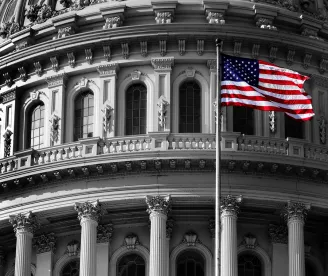U.S. Senators John Thune (R-SD) and Edward Markey (D-MA), two of the original sponsors of the 2019 TRACED Act, have now introduced the Robocall Trace Back Enhancement Act. The authors bill the proposal as a follow on to the TRACED Act intended to “help bolster privately led efforts to trace back the origins of illegal and bothersome robocalls. Thune and Markey have long advocated for consumer rights and protection from illegal robocalls and for holding scammers and other bad actors accountable.” https://www.thune.senate.gov/public/index.cfm/press-releases?ID=599BE2E4-5980-420F-B68D-EA7077EF00C1
The thrust of the bill would protect the trace back consortium set up pursuant to the TRACED Act – currently the USTelecom-The Broadband Association’s Industry Traceback Group – by providing immunity for “receiving, sharing and publishing” certain “covered” trace back information, including information related to “suspected fraudulent, abusive or unlawful robocalls.” The consortium would be protected from lawsuits as a result of “receiving, sharing, or publishing covered information or information derived from covered information.” Voice service providers who shared such covered information with the consortium would be protected from lawsuits based on such sharing.
In addition, the proposal would amend Section 13(e) of the TRACED Act to make clear that the Federal Communications Commission (FCC) or the consortium, in consultation with the FCC, may publish a list of voice service providers based on (a) information obtained from the consortium about such providers that refuse to participate in private-led trace back efforts or (b) other information the FCC or consortium may collect about such providers that are found to originate or transmit substantial amounts of robocalls.
The bill likely will be referred to the Senate Committee on Commerce, Science and Transportation, of which both Senators Thune and Markey are members.




 />i
/>i


